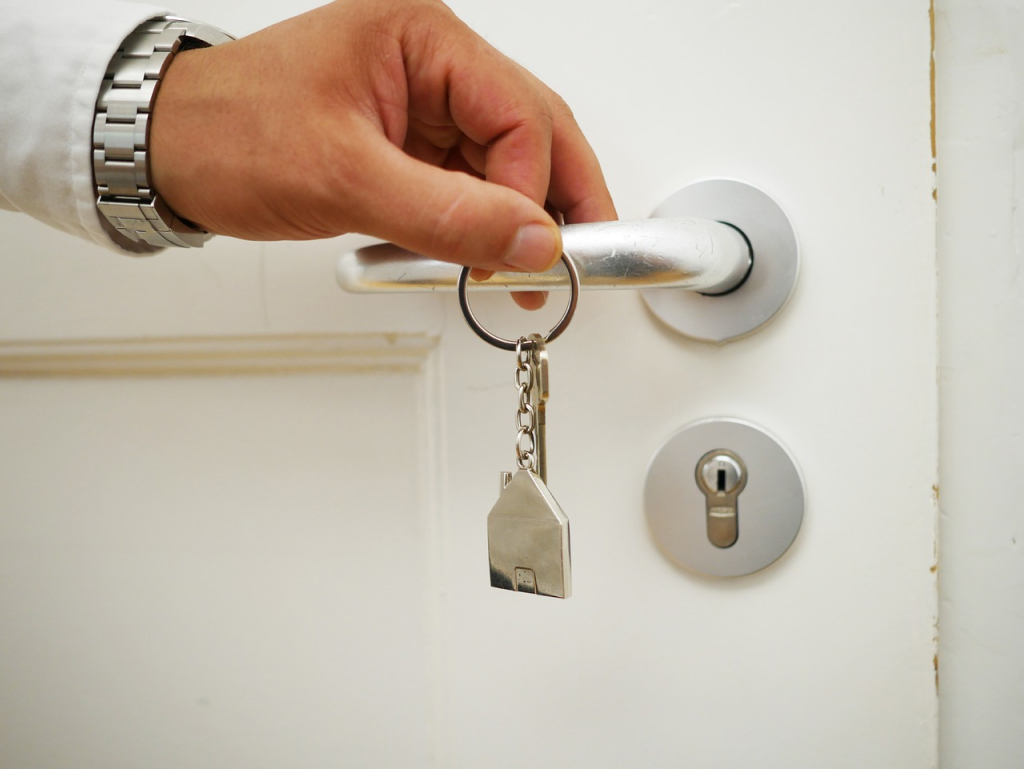Photo by Gerd Altmann on Pixabay
Houston, Texas, is the fourth-largest and one of the most populated cities in the United States.
The city offers plenty of recreational spots, a wide range of cuisines to try, numerous top-rated stores to check out, scenic spots to visit, and a robust housing market to explore. It is a sought-after city for everyone looking for a place to live in a well-developed metropolis.
If you are eyeing a property in the real estate market of Houston, you might as well know what property taxes are and how much it would cost to settle property tax in Houston, TX.
As a professional real estate agent with extensive experience, I recognize the significance of property taxes in the home-buying process. In Houston, TX, it is essential to have a comprehensive understanding of the local tax laws and regulations.
Read on to find out what these taxes are and how they will affect your potential home purchase. A better understanding of property taxes also ensures that your dream home is not only visually pleasing but also financially sound.
Understanding Property Taxes in Houston

Photo by Schluesseldienst on Pixabay
Property taxes are the fees homeowners pay to the city or county where their home is located. It is typically calculated based on the property’s assessed value.
Local governments rely on property tax collections to fund public services like education, safety, and infrastructure upkeep.
Moving to Houston may feel like taking a deep sigh of relief. Aspiring homeowners, whether interested in purchasing a property in the heart of Downtown Houston or in one of the surrounding districts, such as Sugar Land, have access to plenty of business, recreation, food, and housing options.
However, it would be best if you keep in mind that property taxes may significantly impact your financial planning and budgeting.
It is essential to research and understand your area’s property tax rates before making any major real estate decisions. The cost of paying property taxes in Houston can be more than you anticipated.
The Harris County Tax Assessor Collector’s Office and the Harris County Appraisal District handle all property tax matters for the City of Houston.
County tax rates and exemptions are determined by the several taxing entities within the county, as is the case with other property taxes in Texas.
All taxable entities use the same underlying computations. Any applicable exemptions or special appraisals will be applied to reduce a property’s assessed value. Then it will be divided by 100 then multiplied by the unit’s tax rate.
Factors Affecting Property Taxes in Houston, TX
The Texas property tax system comprises the appraisal review board, the county appraisal district, and the taxing units. The appraisal district and the county’s top appraiser set annual property values.
Taxing entities establish tax rates required to fund annual budgets, and the review board attempts to resolve conflicts between property owners and the appraisal district.
During a fiscal year, several events occur. The first is the appraisal district’s estimate of the property’s value as of the first of the year (January 1). Appraisals for agricultural tax exemptions are among the other types of applications processed by the appraisal district.
Any appeals or arguments about exemptions or assessments from property owners are heard by the review board around the middle of May.
Counties, school districts, and local taxing authorities typically pass budgets and property tax rates adequate to pay spending around August or September.
While every Texas property is subject to a unique set of taxing authorities and rates, 1.82% is the average annual property tax rate in Houston, TX.
Here are other factors that affect your property tax in Houston, TX:
Relocation
Moving into a new neighborhood will change your property tax bill because the rates of property taxes in various communities, municipalities, and counties are different.
If you plan on moving to a different city, say, you want to move to Houston, TX, and you’re coming from another state or county, expect your property tax to change.
Home Renovations
If you are concerned about paying property taxes and plan on lowering or at least keeping your current property tax from spiking, you might need to delay that home renovation you are planning.
Home renovations or any home improvement contribute to your property value. The more you improve your home, the higher your assed home value will go. Resulting in a higher property tax liability.
New Developments Around Your Area
New developments like newly constructed homes and recreational activities also add to the property tax you will pay.
In some cases, the more there is in your neighborhood, like parks, playgrounds, malls, and golf courses, your property tax can rise because there is proof that your community is desirable.
Home prices in sought-after communities are higher than those in smaller suburban neighborhoods.
Supplemental Tax
New homeowners may be subjected to supplemental tax in the first year of their ownership.
Supplemental tax is due to make up the gap between the previous owner’s assessed value and your own once the property is transferred to you and reevaluated by the assessor.
If you think your home value assessment needs to be corrected, you may appeal to your local property assessor.
Government Decisions
Your area’s local government also has an impact when it comes to your property tax.
Again, the property taxes paid by homeowners fund the public service projects by the government. If they decide to invest or create a new school, improve public transportation, or build something, it may reflect how much you will pay for your property tax.
Ways to Reduce Property Taxes in Houston

Photo by Gerd Altmann on Pixabay
Although property taxes are based on assessed value and existing property tax rate, there are several ways to reduce the overall amount you must pay.
If you are a property owner in Houston, you may reduce your property tax payment through eligible exemptions or by appealing the estate’s appraised value.
Taxpayers in Houston may qualify for a full or partial tax exemption, and any resident may claim a homestead exemption. Seniors (those 65 and up), those with disabilities, disabled veterans, and surviving spouses are also eligible for further exemptions.
Property owners in the surrounding Harris County areas may also file an appeal. In Texas, appeals against property taxes are usually filed with the county appraisal district at no expense (free).
After filing, an informal hearing and a formal meeting before the appraisal review board are possible outcomes of these tax protests.
Furthermore, you may also try to:
- It is best to hold off on any home upgrades until after the assessment date.
- During the evaluation, ensure that the assessor has company to ensure that they are performing their duties accurately.
- Specify the extent of any damage to the property.
- Ensure your property tax bill does have any mistakes or other problems.
- Find out what property tax exemptions are available in your county, and see if you qualify.

Wrap Up
Property taxes are essential in the growth of a city or county. Houston property taxes help pay for the needs and development of the local taxing units of the counties.
If you plan to purchase a new home in the area, learning about the property tax rate in the place you’re moving into will help you sort your budget to avoid financial problems.
For more information about property taxes in Houston, TX, please feel free to call me at
832.273.9995. You can also send me a message at sheryl.davis@gmail.com.

Photo by Christo Anestev on Pixabay
Frequently Asked Questions
Where to pay property tax in Houston, TX
Houston area residents may pay their property taxes in several ways. Taxes in Harris County, for instance, can be paid in person, through the mail, over the phone, online, by credit card, electronic check, or paper check. Delinquent taxpayers can sign up for a payment plan of 12 or 36 months with the tax office.
Houston, TX, taxpayers usually receive their property tax notice every October or November. They have until January 31 to pay their property taxes without incurring penalties or interest, but they are due as soon as they receive the statement. Taxes overdue as of February 1 will incur fines and interest.
How much is property tax in Houston, TX
Property tax in Houston, TX, depends on how much is the value of your property and then multiplied by the property tax rate of the area. The higher the appraised value, the higher you will pay for your property tax.
To give an overview, Houston’s median home value is $161,300, with an average property tax rate of 1.82%. Resulting in a median yearly property tax amount of approximately $2,932.
What is the property tax rate in Houston, TX
The average property tax rate in Houston is 1.82%.
What is the property tax in Houston, TX
Neighborhood budgets depend on property tax revenue. Property taxes fund governmental services in Texas more than in other states.
The local governments depend almost entirely on property tax receipts without an income tax. Safety, health, parks, buses/rail, water/sewage treatment plants, and other services receive similar funding.
District schools receive the most funding from property tax revenues. City and government employee salaries and benefits require another large portion. Property taxes in Houston also fund road construction, streetlights, walkways, and mass transit.
Who do I pay property tax to in Houston, TX?
You may pay in person in the Harris County Tax Assessor-collector’s office or online by phone, mail, credit cards, e-checks, and checks. The tax office offers 12 to 36-month payment arrangements for outstanding taxes.





